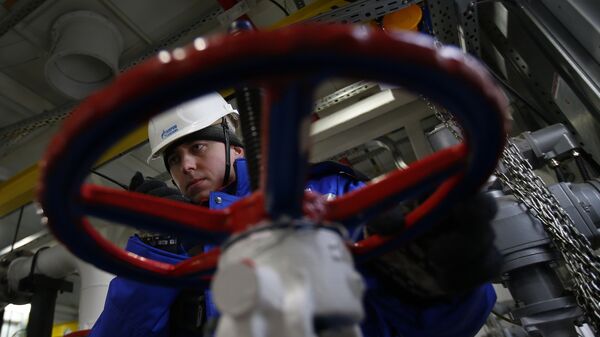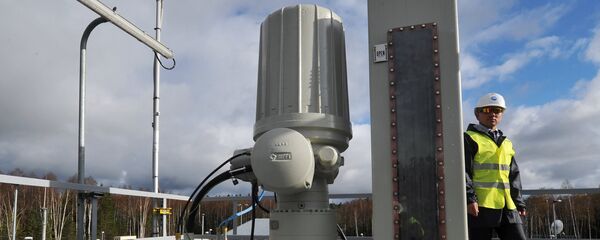Believe it or not, the US-backed TAP (Trans Adriatic Pipeline) deal was announced only days after Russia's Gazprom came up with its new plan of gas delivery to the Balkans bypassing Ukraine.
"It's the latest move in the self-defeating EU pipeline war with Russia," American researcher, author and strategic risk consultant F. William Engdahl remarks in his article for New Eastern Outlook.
"In their determination to bypass their dependency on Russian natural gas, the bureaucrats of Brussels have approved construction of a trans-Adriatic gas pipeline from Azerbaijan to Greece. It looks workable on paper. There's only one problem. It isn't. The main losers are EU consumers and industry," the researcher stresses.
On February 24 Gazprom, Italy's Edison SpA and Greek gas company DEPA SA signed a memorandum of understanding over the ITGI Poseidon project.
"The development of intra-European gas transit capacity is key to strengthening reliability and security of natural gas supplies, including from Russia, to customers all around Europe," Gazprom CEO Alexey Miller said at the memorandum signing ceremony in Rome.
However, the ink had barely dried on the agreement, when the Brussels came up with the TAP initiative.
On March 4 European Union regulators approved a deal aimed at bringing gas from Azerbaijan to Europe, "saying the project was in line with the bloc's state aid rules," Reuters reported.
"The 870-km (540-mile) pipeline, part of the so-called southern corridor that will link Azerbaijan's giant Shah Deniz II field with Italy, crossing through Georgia, Turkey, Greece, Albania and the Adriatic Sea, is the largest project to bring new supplies to European consumers," the media outlet elaborated.
However, not everything is rosy in this garden.
"There is a slight problem in Washington's hasty move to sign a deal with the Azerbaijan government to supply gas to Greece. Acute shortages of gas supply offshore Azerbaijan are forcing the Azeri government and its state oil and gas group, Socar, to look at possible gas imports from… Russia's Gazprom," Engdahl discloses.
It means that Azerbaijan is simply unable to meet the needs of European consumers, no matter how hard Washington and Brussels are forcing the TAP project.
Engdahl remarks, that Washington has long been harboring plans to flood the EU with the US shale gas.
Alas, "the future for shale gas has been described by industry insiders as 'bleak'," the researcher notes, adding that "at present, there is only one single shale gas LNG terminal in operation in the entire United States in Texas."
"The US and Brussels behavior reminds of a roomful of spoiled brats squabbling over who gets to play King of the Hill. The world is getting tired of Washington always taking that role. It's boring," Engdahl concludes.






